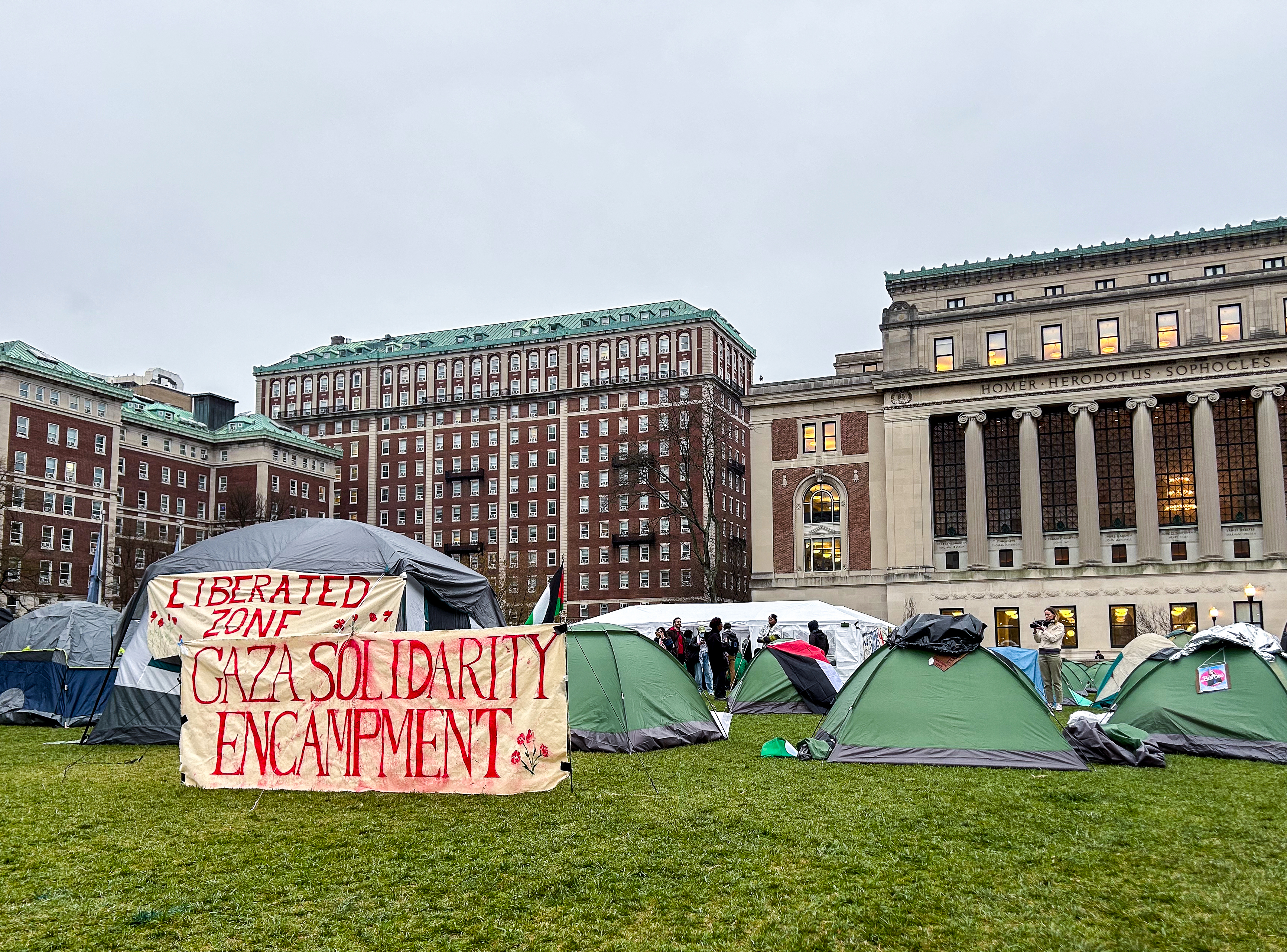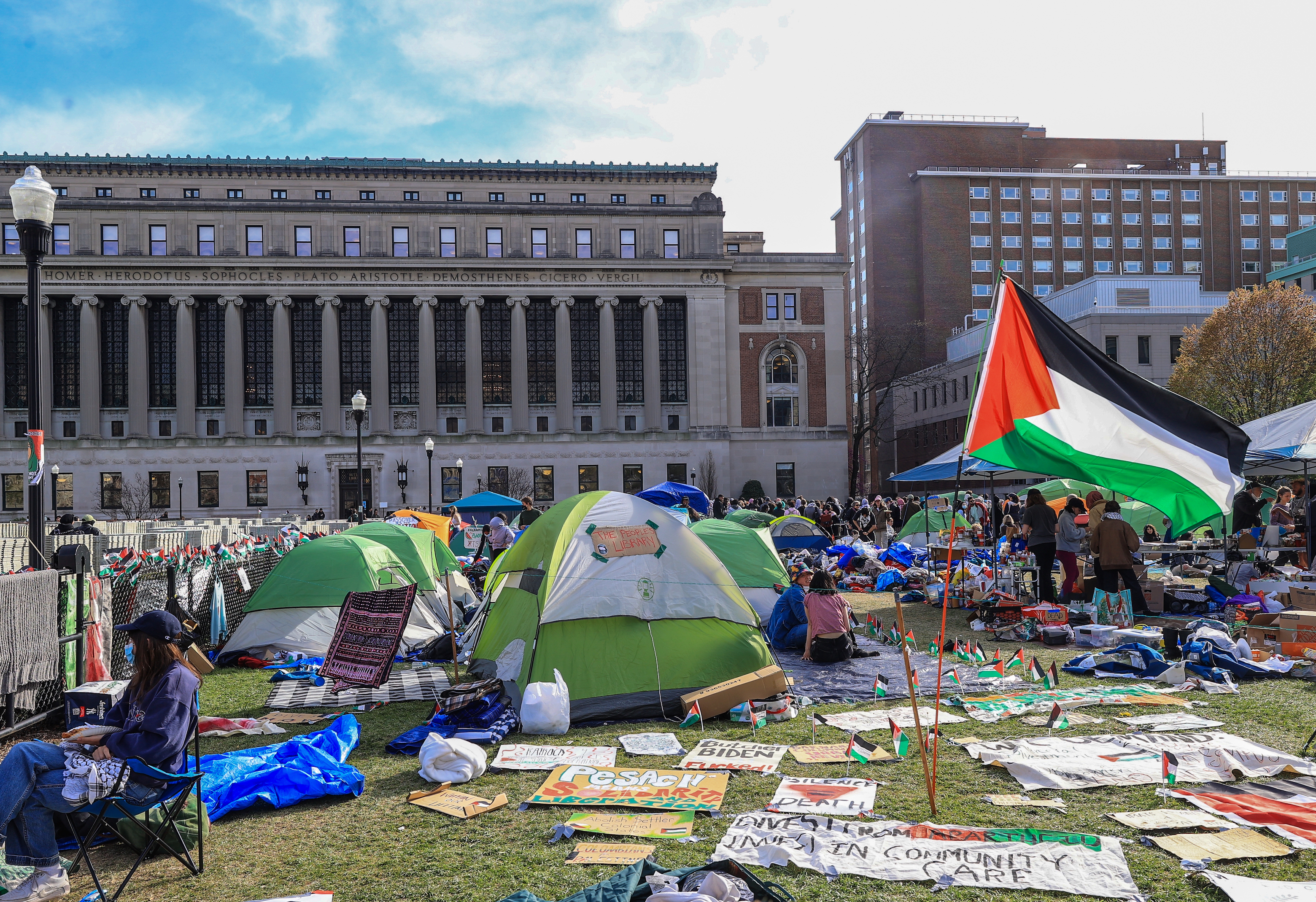
Columbia University will not meet a central demand of pro-Palestinian protesters who should "voluntarily disperse" amid stalled talks, President Minouche Shafik said Monday.
Shafik stated that since Wednesday, a "small group of academic leaders" has engaged in "constructive dialogue" with protest organizers "to find a path that would result in the dismantling of the encampment and adherence to University policies going forward."
"The University’s goal for the talks was a collaborative resolution with the protestors that would result in the orderly removal of the encampment from the lawn. The students also were asked to commit going forward to following the University’s rules, including those on the time, place, and manner for demonstrations and events," she wrote.

"While the University will not divest from Israel, the University offered to develop an expedited timeline for review of new proposals from the students by the Advisory Committee for Socially Responsible Investing, the body that considers divestment matters," she added.
Shafik asked protesters to voluntarily shutter the encampment, vaguely alluding to consultations with "a broader group" to examine "alternative internal options to end this crisis as soon as possible."

The university's internal deliberations remain unclear, but Columbia's local chapter of the Students for Justice in Palestine activist group circulated a copy of a letter purported to be from administrators to the encampment threatening a series of punishments if students do not leave by 2 p.m. local time (6 p.m. GMT).
Potential sanctions include probation, access restrictions, extended suspension, and expulsion, according to the letter, which the group posted on Twitter.
Students are being asked to depart from the encampment by the deadline and sign an "alternative resolution" letter in which they agree "to participate in the University disciplinary processes and follow through on any sanctions for full resolution of any pending or future alleged violations."

The school president said that the protests have "created an unwelcoming environment for many of our Jewish students and faculty" and that "external actors have contributed to creating a hostile environment in violation of Title VI, especially around our gates, that is unsafe for everyone – including our neighbors."
Title VI is part of U.S. law that prohibits discrimination based on race, skin color and national origin.
Shafik has faced pressure largely from both the left and the right to clamp down more harshly on the demonstrations. A letter from more than 20 Democratic representatives said it is "past time for the University to act decisively, disband the encampment, and ensure the safety and security of all of its students."
"The time for negotiation is over; the time for action is now. It is ultimately the responsibility of the Board of Trustees to act. If any Trustees are unwilling to do this, they should resign so that they can be replaced by individuals who will uphold the University’s legal obligations under Title VI," they added.
But Shafik's April 18 decision to ask police to forcibly disband an initial encampment and arrest demonstrators staging a sit-in served as a flashpoint in the wider protest movement. It emboldened demonstrators, and encampments have since spread to universities nationwide in defiance of arrests and threats from university administrators.